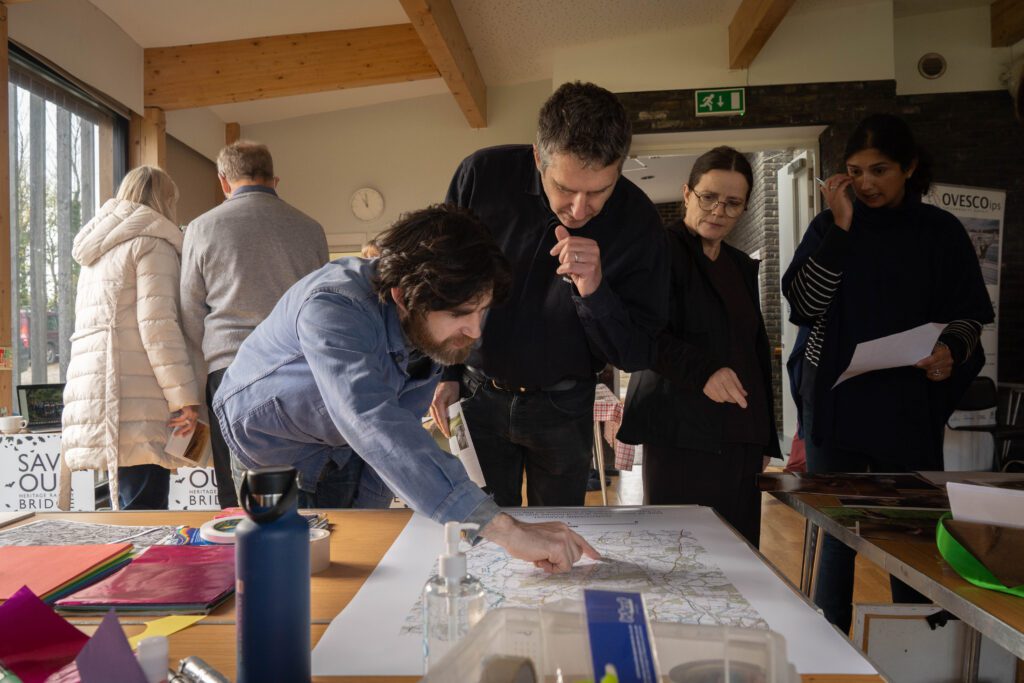Energy transition team gears up to help residents decarbonise
The energy transition team at a prominent global engineering, design and advisory practice has secured funding from the Ofgem Strategic Innovation Fund (SIF) to help deliver a UK compliant offering which could decarbonise millions of terraced homes housing ‘stranded consumers’ while reducing the demand on the electricity network.
Buro Happold, which operates from 37 locations worldwide, will use the SIF funding from Innovate UK and Ofgem, to assess the feasibility of a novel approach to decarbonising terraced streets through innovative approaches to community heat and power, alongside project partners Electricity North West, RV Energy, Rossendale Borough Council and Northern Powergrid.
This will see residents living in terraced street houses in Rossendale, Lancashire, become the first in the UK to benefit from a bespoke community heat and power solution, which collectively harvests the energy from ground source heat pumps and community renewable energy, thereby offering a cost-effective, energy-efficient community level alternative to electric boilers.
The initiative will help inform the development and deployment of viable solutions to residents within the UK’s approximately 10 million terraced homes. Many of whom are believed to be ‘stranded’, unable to install low carbon heat solutions.
Phil Proctor, Technical Director and part of the energy transition team at Buro Happold, explains: “As a practise we are always looking for ways in which we can use novel solutions and proven technologies to help communities and places across the UK decarbonise faster in the race to achieving net zero.
“In collaboration with Electricity North West and SIF partners – Rossendale Valley Energy (RV Energy), Rossendale Borough Council and Northern Power Grid, we are developing a cost-effective, fit-for-purpose solution that will see Rossendale residents amongst the first in the UK to be able to pilot the use of this alternative community heating solution.
“The outcome is expected to deliver heat over three times more efficiently into homes than electric boilers as well as giving all residents fair access to low-cost local energy; thereby reducing bills further. At the same time the capacity requirement on our electricity networks is greatly reduced, allowing more communities to transition within the existing network constraints and ultimately significantly reducing network reinforcement costs.”

Currently, communities such as Rossendale face the challenge of not being able to install subsidised heat pumps due to space constraints or benefit from local renewable energy such as roof top PV, due to affordability. Through integrating a community approach and novel technical and commercial models, multiple opportunities could potentially be unlocked for these communities to engage and transition to more cost- and energy-efficient renewable alternatives.
The energy transition team at Buro Happold will also use its expertise to develop an approach in applying the latest digital planning techniques to identify suitable communities across the UK as well as develop the system architecture and underpinning business and service models for delivery of the solution.
Proctor added: “The UK is under increasing pressure to meet its climate targets through transitioning communities to alternative forms of heat and power. The proposal to decouple gas from electricity prices will help considerably. Nonetheless, there are large numbers of communities that risk being stranded without help due to technical and commercial barriers, such as upfront costs and limited outdoor space.
“Our team’s approach is to look at how the technology available now can be deployed effectively and in close collaboration with community, housing and other local and regional organisations; thereby providing viable, cost-effective and energy-efficient solutions that also help these communities and regions meet their net zero carbon targets faster.”
Victoria Turnham, Electricity North West’s head of network innovation, said: “We’re really pleased Ofgem has recognised the potential of the project and awarded us significant funding to explore it in more detail.
“As a region, we’re seeing more customers start to adopt low carbon technologies such as heat pumps and electric vehicles and it’s our role to ensure the network is ready for people to do that.
“We’re one of the most digital electricity networks in the world and we’re constantly looking at ways to operate more smartly and efficiently. This project will provide huge benefits to customers and we look forward to seeing the results.”
The project will start in April with activities being completed end of May. This can be followed by submission of a further proposal for the next stage of funding in July.
The projects are funded by energy network users and consumers through the SIF, a programme from the UK’s independent energy regulator Ofgem managed in partnership with Innovate UK.
Fifty-three projects were awarded funding under the SIF to help reduce gas emissions and lower bills.



